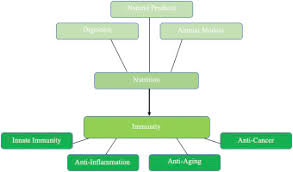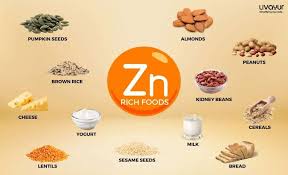In 2024, optimizing your immune system is more important than ever. A robust immune system helps protect your body from infections, diseases, and other health issues. One of the most effective ways to boost your immune system is through proper nutrition. This guide provides the best nutrition tips for 2024 to help you enhance your immune system naturally and lead a healthier life.
1. Understand the Role of Nutrition in Immunity

Nutrition plays a crucial role in maintaining a healthy immune system. Essential nutrients support various immune functions, from the production of immune cells to the regulation of inflammatory responses.
Key Nutrients for Immune Health:
- Vitamins: Vitamins such as A, C, D, and E are vital for immune function. They help protect cells from damage and support the production of immune cells.
- Minerals: Minerals like zinc, selenium, and iron are essential for immune cell function and overall health.
- Antioxidants: Antioxidants help combat oxidative stress and inflammation, which can impair immune function.
2. Incorporate a Variety of Fruits and Vegetables
Fruits and vegetables are rich in essential vitamins, minerals, and antioxidants that support immune health. Eating a diverse range ensures you get a broad spectrum of nutrients.
Tips for Adding More Fruits and Vegetables:
- Aim for Colorful Plates: Different colors often indicate different nutrients. Include a variety of colorful fruits and vegetables in your meals.
- Eat Seasonal Produce: Choose seasonal fruits and vegetables for maximum freshness and nutrient content.
- Try New Recipes: Experiment with recipes that incorporate a variety of fruits and vegetables, such as smoothies, salads, and stir-fries.
3. Boost Your Vitamin C Intake
Vitamin C is well-known for its immune-boosting properties. It helps stimulate the production of white blood cells and enhances the function of immune cells.
Vitamin C-Rich Foods:
- Citrus Fruits: Oranges, grapefruits, and lemons are excellent sources of vitamin C.
- Berries: Strawberries, blueberries, and raspberries are rich in vitamin C and antioxidants.
- Bell Peppers: Red and green bell peppers are high in vitamin C and other essential nutrients.
Tips for Increasing Vitamin C:
- Include Citrus in Breakfast: Add orange slices or a splash of lemon juice to your morning routine.
- Snack on Berries: Enjoy a handful of berries as a healthy snack or topping for yogurt.
4. Get Sufficient Vitamin D
Vitamin D is essential for immune system regulation and helps the body fight off pathogens. It also supports bone health and overall well-being.
Sources of Vitamin D:
- Sunlight: Exposure to sunlight helps your body produce vitamin D. Aim for 10-30 minutes of sun exposure several times a week, depending on your skin type and location.
- Fatty Fish: Salmon, mackerel, and sardines are rich in vitamin D.
- Fortified Foods: Look for fortified foods such as dairy products, orange juice, and cereals.
Tips for Vitamin D Intake:
- Consider Supplements: If you have limited sun exposure, a vitamin D supplement may be beneficial. Consult with a healthcare provider for appropriate dosage.
- Incorporate Fatty Fish: Include fatty fish in your diet a few times a week to boost vitamin D levels.
5. Include Zinc-Rich Foods

Zinc is crucial for the development and function of immune cells. It also helps with wound healing and supports enzyme functions.
Zinc-Rich Foods:
- Shellfish: Oysters, crab, and lobster are high in zinc.
- Legumes: Beans, lentils, and chickpeas provide a good plant-based source of zinc.
- Nuts and Seeds: Pumpkin seeds, cashews, and almonds are rich in zinc.
Tips for Boosting Zinc Intake:
- Add Nuts and Seeds: Sprinkle pumpkin seeds or cashews on salads or yogurt for a zinc boost.
- Incorporate Legumes: Use beans and lentils in soups, stews, and salads.
6. Prioritize Omega-3 Fatty Acids
Omega-3 fatty acids have anti-inflammatory properties that support immune function and overall health.
Sources of Omega-3 Fatty Acids:
- Fatty Fish: Salmon, sardines, and trout are excellent sources of omega-3s.
- Chia Seeds: Chia seeds are a plant-based source of omega-3s.
- Walnuts: Walnuts provide a good amount of omega-3 fatty acids.
Tips for Increasing Omega-3 Intake:
- Eat Fatty Fish Regularly: Include fatty fish in your diet at least twice a week.
- Add Chia Seeds to Meals: Incorporate chia seeds into smoothies, oatmeal, or yogurt.
7. Incorporate Probiotic Foods
Probiotics support gut health, which is closely linked to immune function. A healthy gut microbiome can enhance your body’s ability to respond to infections.
Probiotic-Rich Foods:
- Yogurt: Choose plain, unsweetened yogurt with live cultures.
- Kefir: Kefir is a fermented dairy product that contains beneficial bacteria.
- Fermented Vegetables: Sauerkraut, kimchi, and pickles offer probiotic benefits.
Tips for Adding Probiotics:
- Start with Yogurt: Incorporate yogurt into your daily routine as a snack or breakfast.
- Try Fermented Vegetables: Add fermented vegetables to salads or as a side dish.
8. Stay Hydrated
Proper hydration is essential for overall health, including immune function. Water helps transport nutrients, remove waste, and maintain cellular health.
Hydration Tips:
- Drink Water Regularly: Aim for at least 8 glasses of water per day, adjusting based on activity level and climate.
- Include Hydrating Foods: Eat water-rich foods such as cucumbers, oranges, and watermelon.
- Limit Sugary Beverages: Reduce consumption of sugary drinks and opt for water or herbal teas instead.
9. Limit Processed Foods and Added Sugars
Processed foods and added sugars can negatively impact immune health by promoting inflammation and disrupting nutrient balance.
Strategies for Reducing Processed Foods and Sugars:
- Read Labels: Check ingredient lists for added sugars and unhealthy additives.
- Choose Whole Foods: Opt for whole, unprocessed foods such as fruits, vegetables, and whole grains.
- Reduce Sugary Snacks: Replace sugary snacks with healthier options like nuts, fruits, and yogurt.
10. Practice Portion Control

Maintaining portion control helps manage calorie intake and supports overall health, which can positively influence immune function.
Portion Control Tips:
- Use Smaller Plates: Serving meals on smaller plates can help control portion sizes.
- Listen to Your Body: Pay attention to hunger and fullness cues to avoid overeating.
- Balance Your Plate: Aim for a balanced plate with appropriate portions of protein, vegetables, and whole grains.
11. Maintain a Balanced Lifestyle
In addition to nutrition, other lifestyle factors play a role in boosting immune health.
Lifestyle Tips for Immune Health:
- Get Regular Exercise: Aim for at least 150 minutes of moderate exercise per week to support overall health and immunity.
- Manage Stress: Practice stress-reducing techniques such as meditation, yoga, or deep breathing exercises.
- Ensure Quality Sleep: Aim for 7-9 hours of quality sleep per night to support immune function and overall well-being.
Conclusion
Boosting your immune system naturally in 2024 involves making mindful dietary and lifestyle choices. By incorporating a variety of fruits and vegetables, increasing your intake of essential nutrients like vitamin C, D, and zinc, and staying hydrated, you can enhance your immune function and overall health. Additionally, adopting healthy lifestyle habits, such as regular exercise and stress management, further supports a strong immune system. Embrace these nutrition tips and lifestyle changes to strengthen your body’s defenses and promote a healthier, more vibrant life.

